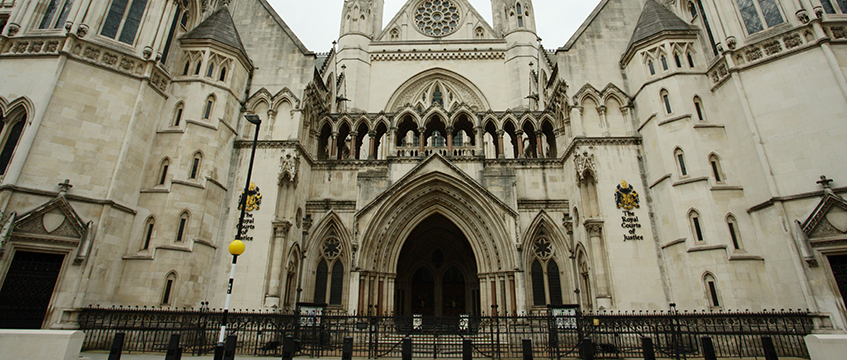Chestertons has failed in an appeal against a decision that the former director of its Mayfair office was unfairly dismissed for “whistleblowing”, after he made allegations that the firm was suppressing profits to reduce commission payments.
The Court of Appeal upheld the ruling of the Employment Appeal Tribunal in favour of estate agent Mohamed Nurmohamed, who worked for Chesterton Global from January 2008 until his dismissal on 17 October 2013.
Lord Justice Underhill said that Nurmohamed had claimed that his dismissal was because he had made protected disclosures within the meaning of the Employment Rights Act 1996 – or, as he put it, “in the usual shorthand, for being a whistleblower” – as well as for ordinary unfair dismissal.
The judge said that Nurmohamed claimed to have demonstrated, at a meeting on 14 August 2013 with Patricia Farley, the director responsible for the London area, “a number of what he said were discrepancies in the monthly accounts which appeared to show that the profitability of the Mayfair office was being artificially suppressed so as to reduce the level of commission payable”.
Lord Justice Underhill added that Nurmohamed claimed he told Farley that this affected the earnings of more than 100 senior managers and believed Chestertons was deliberately mis-stating between £2m and £3m of actual costs and liabilities throughout the entire office and department network.
The judge said it was clear that the EAT accepted Nurmohamed’s evidence, and expressly rejected a contention by Chestertons “that all Mr Nurmohamed was doing was arguing about the impact on his own commission”.
The sole issue on appeal was whether Nurmohamed’s disclosure had been made in the reasonable belief that it was in the “public interest”, as required in order to be protected within the meaning of the Act – and Lord Justice Underhill agreed with the EAT that it had been.
He said that the key issue was whether a disclosure that is in the private interest of the worker making it becomes in the public interest simply because it serves the (private) interests of other workers as well.
He said: “In a whistleblower case where the disclosure relates to a breach of the worker’s own contract of employment (or some other matter under section 43B (1) where the interest in question is personal in character), there may nevertheless be features of the case that make it reasonable to regard disclosure as being in the public interest as well as in the personal interest of the worker.
“An approach to the concept of ‘public interest’ which depended purely on whether more than one person’s interest was served by the disclosure would be mechanistic and require the making of artificial distinctions. It would be extremely unsatisfactory if liability depended on the happenstance of the circumstances of other employees.
In this case, he added: “The disclosure was of what was said to be deliberate wrongdoing, and the alleged wrongdoing took the form of mis-statements in the accounts to the tune of £2m-£3m. If the accounts in question were the statutory accounts, even of a private company, the disclosure of such a mis-statement would unquestionably be in the public interest. The fact that the accounts in question were only internal makes the position less black-and-white; but internal accounts feed into the statutory accounts, and we are dealing here with a very substantial and prominent business in the London property market.”
The judge said that the background was that, in 2011, a new group of investors acquired a shareholding in Chestertons, prompting a review of the system for payment of commission to the sales staff, in the light of concerns that they were calculated only by reference to revenue and without regard to profitability. A new commission system was introduced at the beginning of 2013, relating commission to a substantial extent to the achievement of budgeted profits for the relevant department – in Nurmohamed’s case the Mayfair office.
The judge said: “The claimant believed that the new system would have a serious adverse impact on his earnings. He objected, but in February 2013 he agreed to the new system subject to some modifications.”
However, he went on, Nurmohamed monitored Chestertons’ internal accounts over the following months, leading to the August 2013 meeting.
To send feedback, e-mail jess.harrold@egi.co.uk or tweet @jessharrold or @estatesgazette











